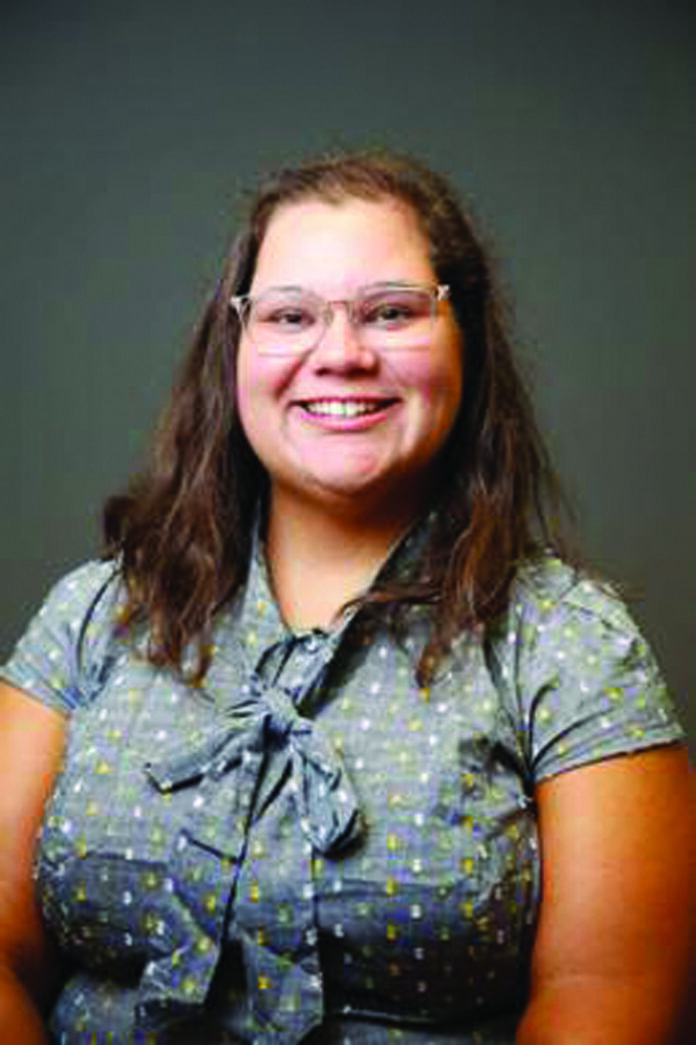Denae Dibrell joined Teach For America in the fall of 2014 and taught English II, AP English and Language Composition at IDEA College Prep Pharr for four years. While there, she also coached UIL Ready Writing, Literary Criticism, and Number Sense. She currently teaches in the writing program at the University of Texas Rio Grande Valley.
What motivated you to apply to join Teach For America and choose to teach in the Rio Grande Valley?
I’m a Valley native who knew early on that I wanted to teach high school writing in my home community, so I researched different teaching programs and certification throughout my undergraduate career. I found Teach For America (TFA) to be of particular interest based on the community and resources they would provide for me and my students, such as: classroom observations and feedback, a community of corps members to share insight and experiences with, professional development, alternative teacher certification, and job placement. Ultimately, I decided that TFA would be a supportive and collaborative space for me to enter the world of teaching, and it was. Today I stay involved with the organization as an active member of the alumni community.
What has been one of the most surprising things you’ve come to learn about education during your time as a classroom leader and instructor?
I am continually surprised by how creative and brilliant my students are. Each semester, I look forward to the stories they tell through their academic research and writing, the different projects they create, and the discussions we have.
If you could change one thing for your students, what would it be?
I want my students to all know how brilliant, insightful, capable, and worthy they are and to know that they all have it in them to do whatever it is they dream. There are many gatekeeping systems and obstacles that often accompany pathways to success, and I want my students to know how to advocate for themselves and to have all the skills needed to navigate those barriers.
What lessons are you learning now that will help you continue to work toward educational equity in the future?
Learning the stories of my students and what their goals, dreams, talents and struggles are helps me think about what I want the future of education to look like for them. My research tends to focus on transfer pedagogy, translingual pedagogy (teaching that focuses on viewing all of students’ linguistic repertoires as valuable instead of as a barrier), and creating inclusive and accessible linguistic learning spaces for my students. More recently, I have begun engaging with more interdisciplinary writing with faculty across departments, and am eager to see how I can continue advocating for my students and develop new methods to teach and assess writing in ways that are meaningful and transferable for my students.
One of the challenges I see students face in my courses is simply not realizing all that they bring to the table — that the knowledge and lived experiences they have are directly applicable to academic and professional contexts. And as their instructor, I am there to facilitate and guide learning; it’s a partnership. One of the strategies to increase the transfer of metacognitive awareness (critical awareness of one’s thinking and learning) for my students is by making connections to their lived experiences and engaging in reflection and reflective writing assignments, which are done in the language that allows them to make the most meaning for themselves. By taking the time to acknowledge that they bring skills to the college classroom, then developing strategies in class to use these skills in the future, my students often realize how capable they are and become more resilient.
Can you share an anecdote or personal experience from your classroom or school?
One of my favorite teaching experiences happened during my first year at UTRGV. Several of the students I’d taught as juniors in high school registered to take my course their freshman year of college. Seeing them grow as writers, as scholars, and as humans across education levels was a truly beautiful experience and validated a lot of what I believe to be true about collaboration and mentorship.
Another experience took place during my first year of teaching high school, in the fall of 2014. My students and I secured funding to attend the Teen Texas Book Festival at my alma mater, St. Edward’s University, in Austin, Texas. Myself and two fellow teachers loaded a bus with almost 50 10th graders to go to a festival … about books! Faculty members from my alma mater organized space on campus for my students to hang out in between author events and panels, equipped with snacks, drinks and free books. Students got books signed, had conversation with authors, and toured the campus. We then ate pizza at my favorite park in Austin (which has the most beautiful view of the city skyline) before driving home. Sharing an excitement for literacy with my students in a place that got me so excited about learning is an experience I cherish to this day.
Teach for America (TFA) is the national nonprofit organization committed to the idea that one day, all children will attain an excellent education. To this end, the organization partners with communities to inspire the next generation of leaders to address unequal educational opportunities that fall along the lines of race and class. They begin this lifelong work with an initial two-year commitment to teach in some of the nation’s most underserved schools. Here in the Rio Grande Valley, 61 corps members work in seven districts across the region.




